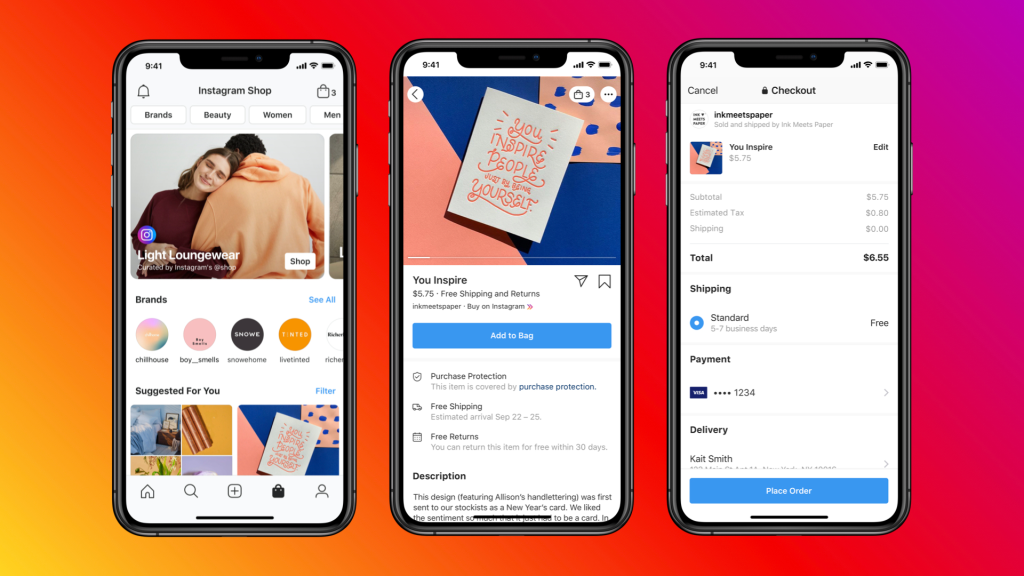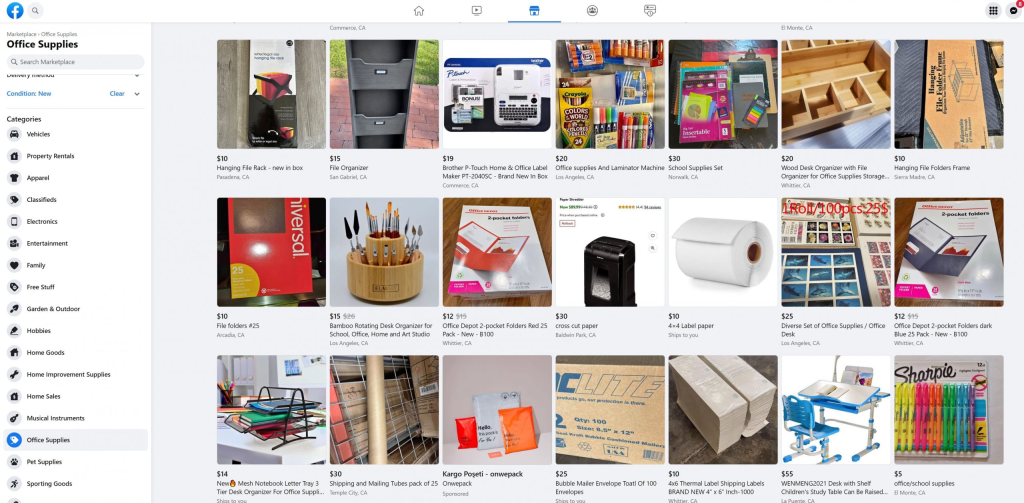Facebook Marketplace has long been a go-to platform for individuals looking to buy and sell items locally. However, in recent years, Facebook (now Meta) has been evolving Marketplace into a powerful tool for small businesses. With its massive user base and growing features tailored for business use, Facebook Marketplace has become a must-have platform for small business owners looking to expand their reach and grow sales.

As Meta continues to roll out updates and improvements to Marketplace, small businesses can take advantage of new features to enhance their online presence, streamline operations, and connect with potential customers more effectively. Let’s dive into the latest updates to Facebook Marketplace and explore how these changes can benefit small businesses.
Why Facebook Marketplace Matters for Small Businesses?
Before we delve into the new features, it’s important to understand why Facebook Marketplace is such a valuable tool for small businesses. With over 2.9 billion monthly active users across the Meta ecosystem, Facebook provides a massive audience for small business owners. Marketplace, which is embedded within Facebook’s main platform, offers businesses a way to reach customers who may not be actively seeking out a business’s website but are already browsing the platform.
By listing products on Marketplace, small businesses can take advantage of Facebook’s built-in audience, targeting tools, and social features to reach local or global customers. With new updates, Marketplace is becoming even more business-friendly.
New Features for Small Businesses on Facebook Marketplace
Meta has recently introduced several updates designed to help small businesses maximize their presence on Facebook Marketplace. Here are some of the key features to watch:
1. Business Profiles for Marketplace Sellers
One of the most significant changes to Facebook Marketplace for small businesses is the introduction of business profiles. Previously, sellers were limited to using personal profiles for business listings. Now, businesses can create dedicated business profiles that showcase their brand and provide additional information, such as:
- Business hours
- Contact information
- Customer reviews and ratings
- Company logo and cover photos
This dedicated space helps small businesses present a more professional image to potential customers. It also enhances credibility, allowing businesses to establish trust with buyers by displaying verified information.
2. Increased Integration with Facebook Shops
Facebook has been heavily promoting its Facebook Shops feature, which allows businesses to set up online stores directly on the platform. Recently, Meta has enhanced integration between Facebook Shops and Marketplace, enabling businesses to sell items through both platforms seamlessly. This integration allows:
- Streamlined inventory management between Facebook Shops and Marketplace.
- Unified shopping experience for customers, who can browse and buy products from either Marketplace or a Facebook Shop.
- Easy product listings that can be automatically synced between Facebook Shops and Marketplace, saving businesses time and effort.
By linking your business’s Facebook Shop to Marketplace, you can ensure your products are available to a larger audience, leading to more visibility and increased sales.
3. Promoted Listings
In order to help businesses boost their visibility, Meta now allows businesses to promote listings on Facebook Marketplace. Similar to paid ads on the main Facebook platform, this feature allows businesses to pay to have their products appear more prominently in search results and on users’ feeds. This is particularly useful for small businesses looking to increase product exposure to a broader audience.
With promoted listings, businesses can:
- Target specific audiences based on demographics, interests, and behaviors.
- Set a budget that aligns with their advertising goals, whether it’s to increase brand awareness or drive sales.
- Track performance through analytics, gaining insights into how their promoted listings are performing.
This feature makes it easier for small businesses to gain visibility, especially in crowded markets or for new businesses still building a customer base.
4. Messaging Features and Chatbots
Facebook Marketplace has integrated more messaging tools to streamline communication between sellers and buyers. In addition to Facebook Messenger, businesses can now use automated chatbots to handle common customer inquiries, such as product availability, shipping details, and pricing.
These bots can:
- Provide instant responses to common questions, enhancing customer satisfaction.
- Qualify leads by collecting necessary information about potential buyers, such as location or budget.
- Schedule follow-ups and send reminders to customers, increasing the chances of converting inquiries into sales.
By leveraging Messenger and chatbots, small businesses can offer faster, more efficient customer service, ultimately improving the overall buyer experience.
5. Payment Integration
Meta has recently expanded the payment options for Marketplace sellers. In addition to the traditional cash or in-person payments, businesses can now use Facebook Pay for secure online transactions. Facebook Pay allows businesses to accept payments directly through the platform, reducing friction for buyers and offering a smooth checkout experience.
Key benefits of Facebook Pay include:
- Security and fraud protection for both businesses and customers.
- Seamless checkout process for buyers, making it easier for them to complete purchases.
- Record-keeping that helps businesses track their transactions more easily.
By enabling Facebook Pay, businesses can provide a trusted and convenient payment option, which can increase customer confidence and boost sales.
6. Advanced Analytics
Meta has introduced more robust analytics tools for Marketplace sellers. These tools help businesses track their performance, gain insights into customer behavior, and optimize their sales strategies. Some of the key analytics features include:
- Sales performance metrics, such as how many products were sold, total revenue, and average order value.
- Engagement stats, including views, clicks, and interactions with listings.
- Customer insights, such as which products are the most popular or what regions have the highest demand.
With this data, businesses can make data-driven decisions to optimize their listings, pricing, and marketing strategies, ultimately improving their bottom line.
7. Product Bundles and Discounts
To attract more customers and increase sales, businesses can now offer product bundles and discounts through Facebook Marketplace. By grouping complementary products together and offering a discount for bundled purchases, businesses can encourage customers to buy more and increase their average order value.
Additionally, businesses can set up time-limited promotions, flash sales, or exclusive discounts to create urgency and drive more sales.

How to Leverage These Features for Your Business?
Now that you’re familiar with the latest features, here are a few strategies to leverage Facebook Marketplace effectively:
1. Build a Strong Business Profile
Make sure your business profile is complete, professional, and up to date. Use high-quality images, add a compelling business description, and encourage satisfied customers to leave reviews. This will help build trust and attract more customers.
2. Promote Your Products
Utilize promoted listings to gain visibility, especially if you’re selling popular or seasonal products. Ensure your ads are targeted to the right audience to maximize ROI.
3. Engage with Customers via Messaging
Use automated messaging and chatbots to quickly respond to inquiries, provide personalized support, and convert leads into sales.
4. Use Facebook Pay
Enable Facebook Pay to make it easy for customers to purchase your products securely within the platform. This can help reduce cart abandonment and increase conversions.
5. Optimize with Analytics
Regularly review the analytics to track your sales performance and identify areas for improvement. Adjust your listings, pricing, and promotions based on the insights you gather.

For more related content like this, you can also check our topics on:-
- How to Create Creative Images for Facebook Instagram Stories
- How to Make Your Facebook Profile Attractive
- How to Create Professional Cover Photos for Social Media
- How to Increase Facebook Likes and Reach for Your Profile
- The Complete Guide to Facebook Advertising in 2024: Tips and Tricks
- Facebook Live vs. Instagram Live: Which Platform is Best for Your Business?
- Tips for Creating Viral Content on TikTok, Instagram, and Facebook
- Facebook Marketplace for Small Businesses: New Features to Watch
Final Thoughts
Facebook Marketplace has become a key player for small businesses looking to sell their products online. With the new features Meta has rolled out, businesses can now leverage advanced tools to increase visibility, engage with customers, and streamline operations. Whether you’re a local business or an e-commerce entrepreneur, Facebook Marketplace is an invaluable resource for reaching a massive, engaged audience and growing your business.
By staying on top of new updates and making full use of the available features, small businesses can build stronger customer relationships and drive greater sales success on this evolving platform.


